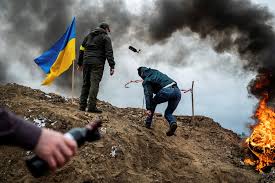On the edge: On West Asia and the danger of a wider war
While protecting Israel, the West must also rein in Netanyahu
The killings of Fuad Shukr, a senior Hezbollah commander, in Beirut, and Ismail Haniyeh, the political chief of Hamas, in Tehran, within hours on July 30 have taken West Asia to the brink of a wider war. Israel has claimed the strike on Beirut that killed Shukr, but has neither confirmed nor denied its role in the assassination of Haniyeh, a standard approach about its operations inside Iran. Israel’s northern border with Lebanon has remained tense ever since the Gaza war broke out last year with Hezbollah and the Israeli Defense Forces exchanging fire. After Shukr was killed, Hezbollah leader Hassan Nasrallah said Israel had breached a red line, and the group has launched dozens of rockets over the past week, heightening the tensions. A bigger risk is the expected Iranian retaliation against Israel. When Israel bombed Iran’s embassy complex in Damascus on April 1, Iran launched hundreds of drones and cruise and ballistic missiles towards Israel, most of which were shot down by a U.S.-led coalition. If Iran carried out such an attack in response to an Israeli strike on its embassy in a third country, it is unlikely to ignore a direct Israeli attack on its capital that killed an ally who was in Tehran to attend the presidential inauguration.
To be sure, by killing Haniyeh in Tehran, Israel has demonstrated its capabilities to pull off sophisticated operations even in hostile territories and exposed Iran’s security and intelligence vulnerabilities. Israel has also sent a strong message to Hamas, which carried out the October 7, 2023 attack, that none of its leaders is safe. Yet, this unchecked militarism of Prime Minister Benjamin Netanyahu could turn out to be counterproductive for Israel in the long run. It is now apparent that Mr. Netanyahu is not serious about peace. The killing of Haniyeh has come at a time when both Israel and Hamas were making progress in talks for a hostage-ceasefire deal. Haniyeh, who was living in exile in Doha, was a relatively moderate voice within Hamas who pushed for a ceasefire. By taking him out, Mr. Netanyahu is telling the world that he wants the war to continue. And, by carrying out the attack in Tehran, which is a flagrant violation of Iran’s sovereignty, Mr. Netanyahu is practically challenging the Islamic Republic to retaliate. If a direct war breaks out between Israel and Iran, the U.S. could be dragged into it, which is what Israel wants. The Biden administration avoided such a disastrous outcome in April by reining in Israel after Iran’s retaliation. But that did not stop Israel from launching another provocative attack against Iran, taking the region back to the brink again. As West Asia braces for Iran’s retaliation, the U.S. and its allies should work together to make sure that the impact of its response on Israel would be minimal, and then put in place new rules of the game for Israel so that it does not threaten regional security again as it did on April 1 or July 30.
